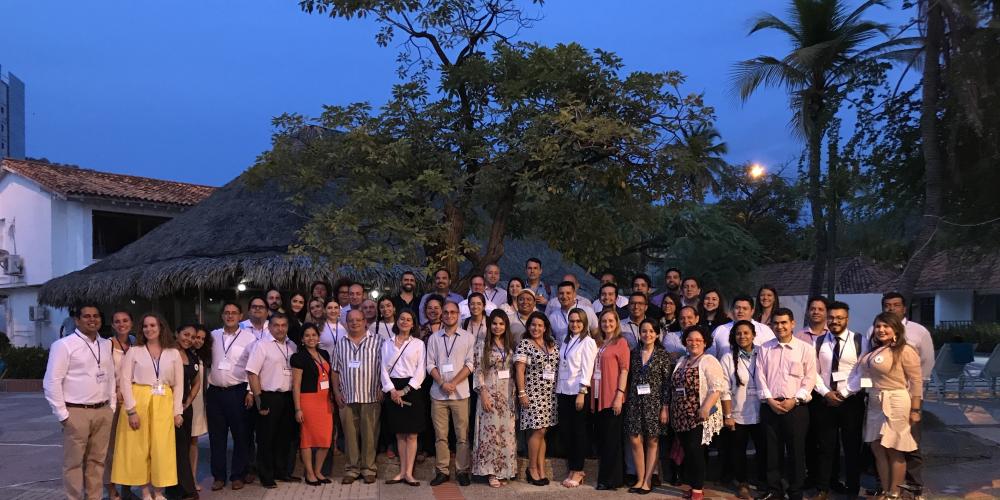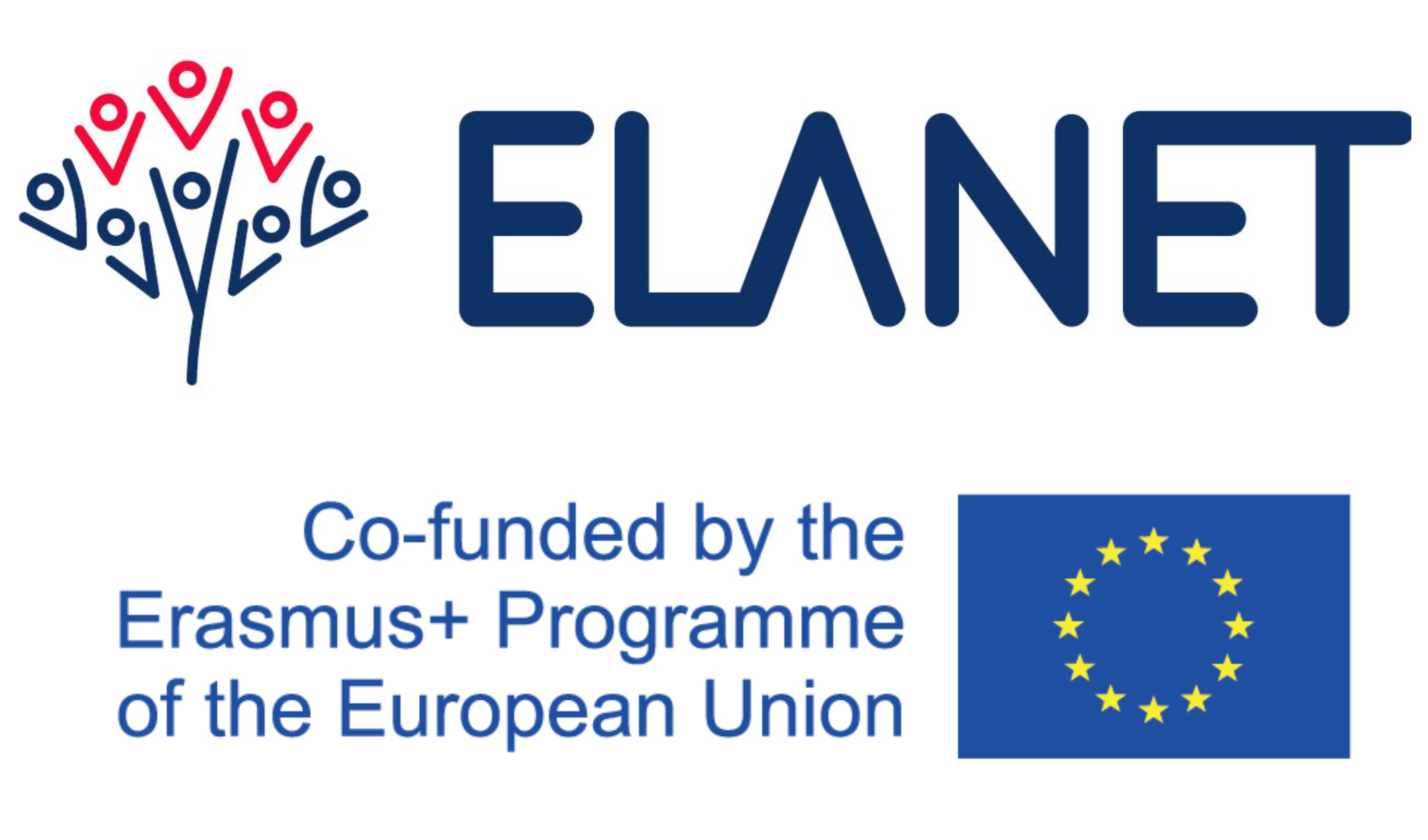
Many universities, like VUB, have three prongs to their mission statement: provide high-quality education, research excellence, and make a contribution to society. Universities are pivotal in creating a support network for social entrepreneurs. And that’s one of the goals of the Erasmus+ funded project, ELANET, which was launched in January 2021. At the helm are Prof. dr. Nikolay Dentchev, Chair of Social Entrepreneurship, and Abel Díaz González, who recently defended his PhD on this topic at VUB.
What is a social entrepreneur?
“There is actually no consensus on a definition of ‘social entrepreneur’”, Abel explains. “It’s someone who spots a social problem and proposes a creative solution to facilitate positive change. This requires a business model, and a lot of innovative ideas. That’s it. That’s how we see the definition of ‘social entrepreneur’. We don’t go into the profit/non-profit discussion, which is sometimes valid. At the heart is a social and environmental mission; someone who envisions a social positive change. Whether you are working for profit or not, you’ll still have costs to manage, so you still need a business plan”.
The European Latin-American Network in Support of Social Entrepreneurs (ELANET) is a consortium of 17 partners and 35 associated partners from different organisations and higher education institutions (HEIs) in Europe (Belgium, Bulgaria, Austria and Italy), and Latin-America (Peru, Bolivia, Colombia and Ecuador). The consortium is coordinated by Vrije Universiteit Brussel (VUB), under the coordination of the VUB Chair of Social Entrepreneurship, and aims to create (in the next 3 years) an IT platform with seven modules:
- Social entrepreneurship cases to inspire
- Social entrepreneurs in need of support
- Support partners
- Volunteers
- Tools for mentors
- Tools for social entrepreneurs
- Library
“Next to this tool, we aim at strengthening the partner HEIs networks in support of social entrepreneurs, thereby intensifying interaction between them and their ecosystems, while at the same time ensuring an international dimension throughout”, Prof. Dentchev adds. At the moment the social entrepreneurs are contacted through the consortium’s university networks. “Our ambition is to grow and become a point of reference where social entrepreneurs come to us, spontaneously. We don’t have any set criteria to ‘accept’ them, as we want to support them all. All we look for is a clear social and environmental aspect to their business model. We don’t want anything too stringent. Maybe that will change further down the line, but for now, we want to support them, inspire them and help them progress.”
Origins and goals
ELANET’s mission is to significantly increase the support capacity of higher education institutions towards social entrepreneurs by creating a vibrant international network with complementary resources and skills. A network consisting of students, university staff, incubators, NGOs, foundations, financial institutions, government agencies and the media. The idea behind the project goes back to 2017 when the VUB’s Chair for Social Entrepreneurship was involved in a VLIR-UOS capacity-building project with the Universidad Catolica Boliviana, which looked at supporting vulnerable entrepreneurs in Bolivia. For several years, other visits were organised to Latin America including universities in Ecuador and Colombia based on the research activities of the Chair, Abel’s PhD,and the ambition to support social entrepreneurs’needs. Out of this, and after many discussions, the first Social Entrepreneurship Summit was held in Santa Marta, Colombia, in December 2019 at Universidad del Magdalena, a VUB partner institution, with 110 participants. It led to an exchange of ideas and the common desire to create a university-led international ecosystem and IT platform in support of social entrepreneurs. ELANET was set-up, and the project proposal was selected to receive EU funding in August 2020. [continue reading below the picture]

State of play
“Elanet kicked off in January this year and we’re currently doing several things at the same time. We’re completing a gap analysis to see what the social entrepreneurs’ needs are, and what is currently available at the different higher education institutions. In parallel, we’re working on the development of our IT-platform, but also building capacity at HEIs: how are universities positioning this topic and how can they provide support.” Prof. Dentchev continues: “The next step will be to mobilise our internal stakeholders. At VUB e.g. there are roughly some 10,000 staff members. If we get even just 1% to support or help out, that makes 100 people. But we also need mentors from outside our university. We need partners who engage themselves to stimulate knowledge transfer. We want to build this ecosystem in an organic way following the dynamics of the city.”
The IT platform will be an elevation of the current ELANET website; a sort of ELANET 2.0 that is more interactive and community-based. The collecting of materials and case studies is gathering pace. The idea is to bring it all together and see what patterns emerge and which solutions are needed to which problems.
We asked Prof. Dentchev and Abel about this project’s endgame and at what point they will be happy? “We’ll be happy when we see the impact of ELANET on social entrepreneurs themselves, on their operational, financial and managerial challenges. Once we see a support network with partners sharing their expertise and resources, and that the social entrepreneurs start using these to scale up their business ideas, we’ll be happy.”
COVID-impact & engaging the VUB community
Like with many ongoing projects, the COVID19-pandemic impacted ELANET. Prof. Dentchev clarifies: “It brought the consortium closer together. With no borders, no travel, we had more one-on-one meetings and actually got to know each other pretty well. We’ve decided that going forward, post-pandemic, we’ll keep some activities online, because it’s easier and we know now that it can work. Also, our launch event was a big success with some 1,300 people following our live online event.”
The next steps are to engage the VUB community and to get more students involved, especially those who have their own business plan-ideas. “We really want to reach out to students and give their ideas and projects more visibility, and support them, “ Prof. Dentchev adds. But the call for help is also to faculty members to create more synergies between faculty staff, researchers and ELANET so they can become ELANET ambassadors. “We also want to engage the VUB alumni community, who can inspire and help our students through ELANET, by sharing their experience and knowledge, but in a similar vein, we want to motivate all of the VUB staff as well to help out and create awareness of ELANET.”
>>Let’s ELANET
The project is currently looking for the most inspiring cases of Social Entrepreneurs. If you are one of them (or know some) please reach out to the ELANET team, to include your case on their platform and join this vibrant community of changemakers. You can get more information about ELANET at www.elanet-se.org